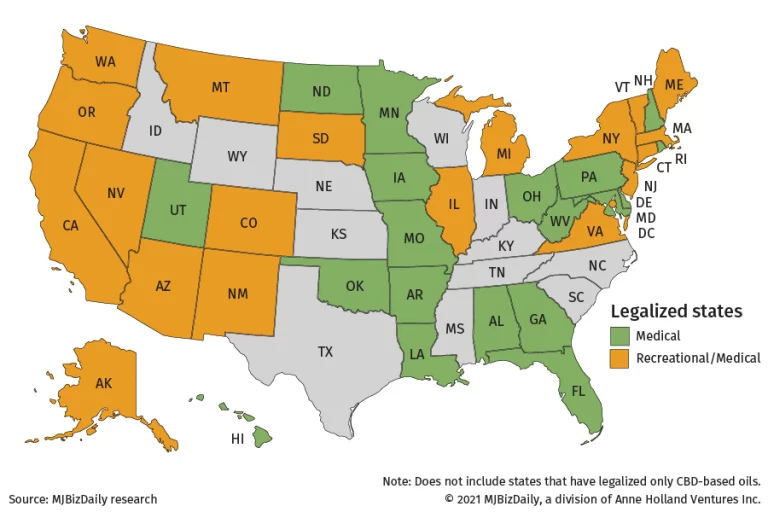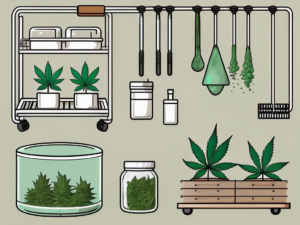Two new states have approved legal recreational cannabis sales in this year's midterms. They join 21 states that have done so to date. Is the United States one step closer to federal legalization?
The cannabis industry in America is rapidly expanding, with more and more states legalizing the recreational use of cannabis each year. The latest states to join this growing trend are Maryland and Missouri, both recently passed laws legalizing recreational cannabis. This is a significant development for the cannabis industry in America, and it has the potential to bring a range of benefits and opportunities for cannabis cultivation software providers and other businesses in the industry.
State benefits
One of the most significant impacts of Maryland and Missouri legalizing recreational cannabis is the potential economic benefits. The cannabis industry is already a major contributor to the American economy, with the industry expected to create more than 250,000 jobs by 2020. As more states legalize recreational cannabis, this number is likely to grow. In addition, the legalization of cannabis can also bring significant tax revenue to states. For example, the cannabis industry in Colorado generated $1.7 billion in economic activity in 2017, with $247 million in tax and fee revenue going to the state. By legalizing recreational cannabis, Maryland and Missouri have the potential to similarly boost their economies and bring in significant tax revenue.
The bigger picture
Another important impact of Maryland and Missouri legalizing recreational cannabis is the potential impact on the national cannabis market. With 15 states and the District of Columbia now having legalized recreational cannabis, and more states likely to follow, the American cannabis market is becoming increasingly competitive. This is a positive development for businesses in the industry, including providers of cannabis cultivation software, as it is likely to drive innovation and improve the quality and variety of cannabis products available. Maryland and Missouri are both large states with significant populations, so they have the potential to become significant players in the national cannabis market. This could lead to increased competition and innovation, and ultimately benefit consumers and businesses in the cannabis industry.
Public health and saftey
In addition to the potential economic and market impacts, the legalization of recreational cannabis in Maryland and Missouri also has the potential to bring positive impacts in the areas of public health and safety. One of the main arguments in favor of legalization is the potential for increased access to and use of cannabis for medical purposes. In states where cannabis is legal, patients are able to access a range of cannabis products to help manage a variety of conditions and symptoms. This can be especially beneficial for patients who may not respond well to traditional medications or who are seeking alternative treatments. The legalization of recreational cannabis in Maryland and Missouri is likely to increase access to medical cannabis and bring potential health benefits to patients.
Crime and illegal markets
Furthermore, the legalization of recreational cannabis can also help to reduce illegal activity and criminal involvement in the cannabis market. In states where cannabis is illegal, the cannabis market is controlled by illegal drug cartels and other criminal organizations. This can lead to violence, corruption, and other negative effects on society. By legalizing and regulating the cannabis market, states can take control away from criminal organizations and reduce illegal activity. This can have a positive impact on public safety, as well as reducing the burden on law enforcement and the criminal justice system. For example, arrests for cannabis possession in Colorado decreased by nearly 50% from 2012 to 2017 after the state legalized recreational cannabis.
The takeaway
In conclusion, the legalization of recreational cannabis in Maryland and Missouri is a significant development for the American cannabis industry. It has the potential to bring economic benefits, including job creation and tax revenue, as well as increasing competition and innovation in the national cannabis market. Additionally, the legalization of recreational cannabis can also bring potential benefits in the areas of public health and safety, including increased access to medical cannabis and reduced illegal activity. Overall, the legalization of recreational cannabis in Maryland and Missouri is a positive step for the cannabis industry and for society as a whole. This is an important moment for the cannabis industry, and it is likely to have far-reaching effects as more states continue to legalize recreational cannabis and the industry continues to grow and evolve.



